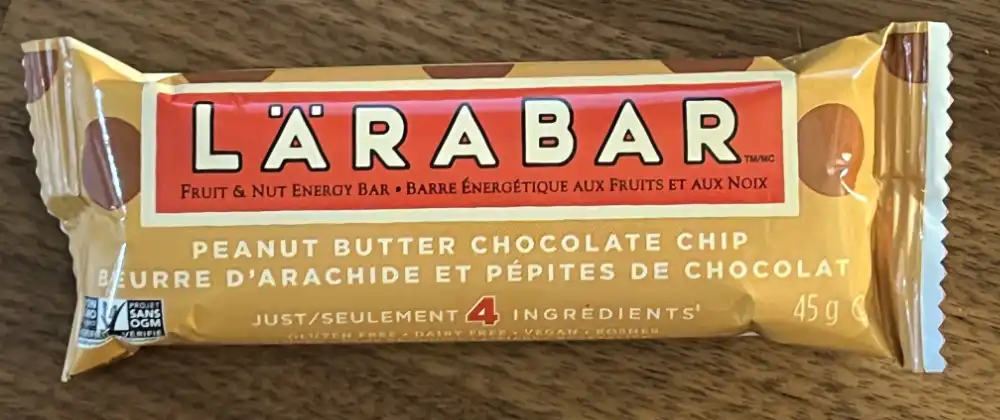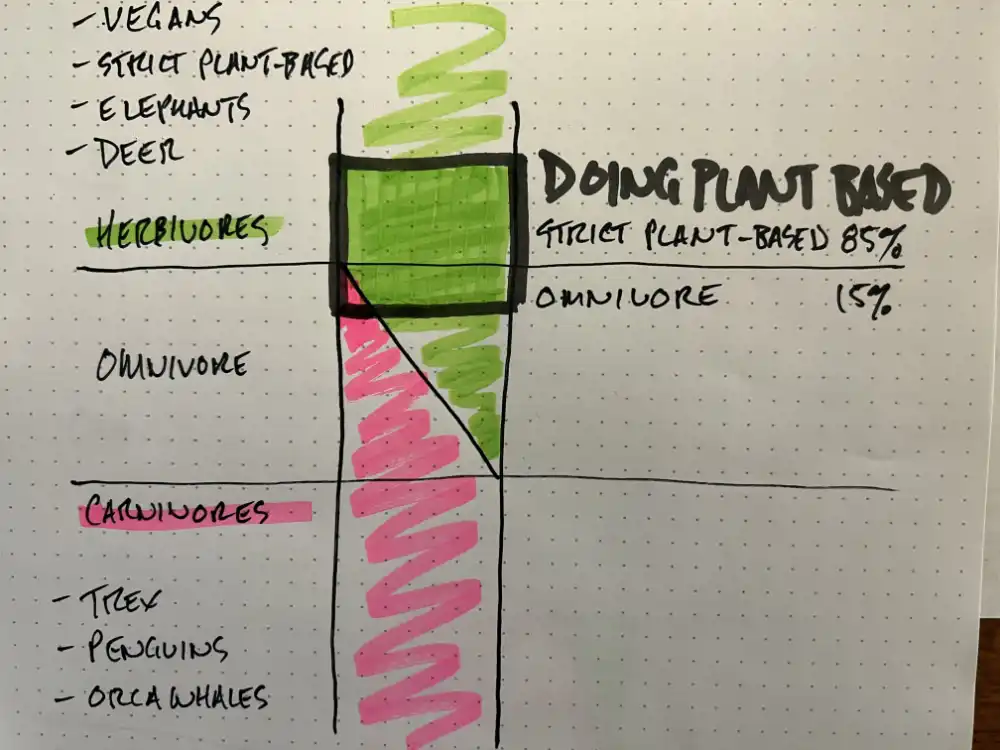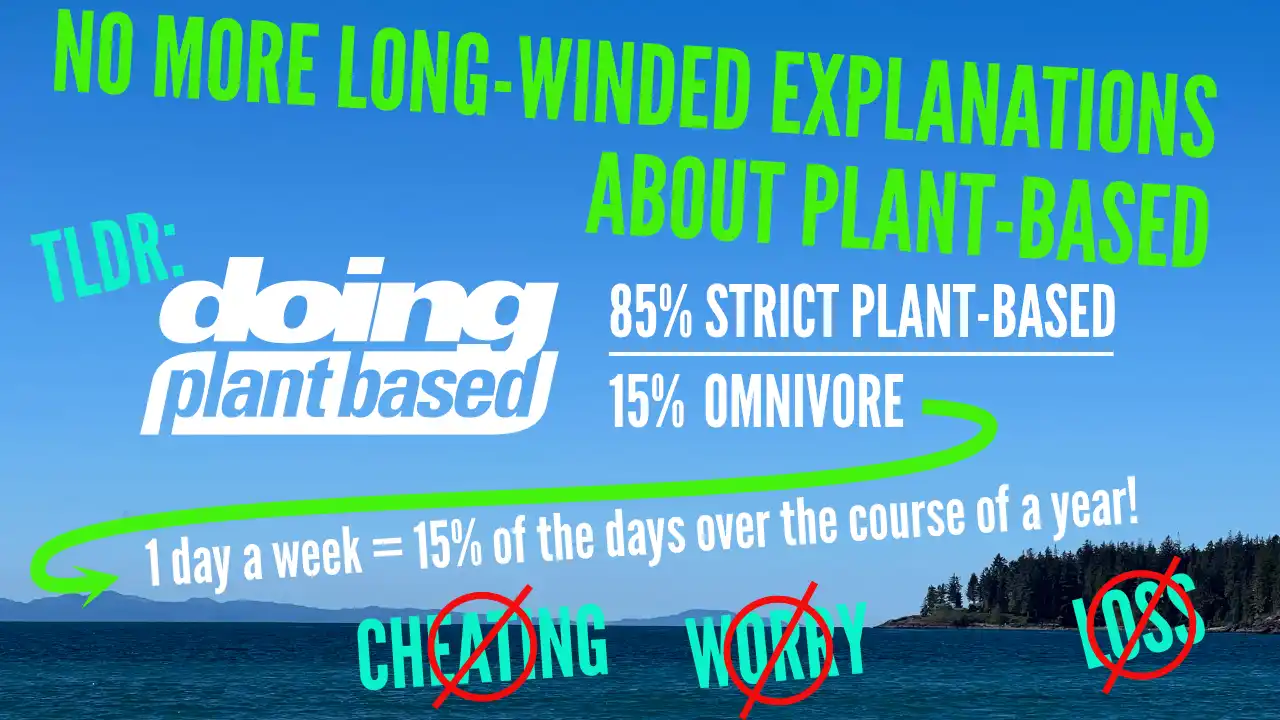One of the reasons the wife and I decided to start this blog was a lack of information about how people switched from eating like an omnivore to plant-based. Everyone shares recipes and photos of what they eat (like we do daily on our Instagram page) and why they eat the food they do, so we thought someone starting out, or even people as far along as us might find some utility in focusing on how we've done it over the past few years, beginning with a really specific definition of what Doing Plant Based means, and how we worked it out and how it's impacted how we eat since then.
Before I switched from being an omnivore to plant-based, I spent a serious amount of time reading books, websites, listening to podcasts and basically spending a lot of time consuming information before actually getting started. My first epiphany was to focus maniacally on convenience and weakness—as in, what I'd do after smoking a bunch of weed and getting hit hard with a serious bouts of the munchies, of the kind where you're either going to find and consume a whole lot of junk food real soon, or else be hospitalized for starvation.
Now, let me tell you, nothing cured my cravings for all junk food in the long run better than going overboard with plant-based alternatives (YMMV). I learned that phoney potato chips made from parsnips are disgusting. I tried out chocolate protein bars from the expensive aisle of the grocery store until I started to feel self-conscious about the person at the checkout counter thinking that I might be thinking I'm making a health-conscious choice with my indulgent purchases. After hearing people say that nutritional yeast is like cheese, I tried everything in a box or a bag that was over-seasoned with the stuff, aaaaaand.... it isn't.
All that said... Nutritional yeast is pretty tasty, but I'll never call it n**ch. Ever. But it's great on popcorn with just a little bit of MSG. I love the stuff—doesn't give me headaches, and it keeps the wife away from my popcorn. She's the sort of person that's concerned that it does, and therefore abstains, which is reasonable (although she has yet to figure out the biggest source of her headaches sleeps next to her in bed at night... Shhhhh).
There's also a girl (I'm assuming here), named Lara, who makes a really great date bar—but only the one with peanut butter and chocolate. It's so easy to overpower everything with a little peanut butter, and it completely masks the unusual tart/sour flavour and smell that pervades all of the packaged date foods that I've ever tried, including her other bars.

Delicious.
After I worked out how I'd snack, and how to make things nice and convenient, I started working towards 100% strict, whole-food plant-based. I knew it wasn't going to be something that was going to be sustainable in the long run, but I was initially eager to see how long it would take, and once there how long I could stay. This was all early 2020, and when the pandemic lockdown started I'd get home from work every day (I was deemed "essential"), put on Korean baseball (go 트윈스!!!) and watch from the kitchen while cooking dinner and prepping lunches for the next day.
Even though there was nothing else to do, this was a lot of mental work, and I knew that eventually the gym was going to re-open and I'd be back to playing BJJ, and the wife would be off to spin and dance classes. All of this kitchen time would become an enormous hassle. I kept circling back to convenience and we worked out things like a weekly meal prep strategy, grocery pickup, then delivery, and then pre-made meal services. The amount of effort day to day, and even week to week was shrinking, everything was becoming easier, even habitual.
But I was still thinking about all of it. My journals from those days are full of scribbly notes about what I was eating and what I wasn't, and notes about the dread I was feeling when I thought about BBQs, or Korean fried chicken & beer (치맥) with friends. When someone would ask me if I'd tried the newest fried chicken place in town (there's been an explosion of them around here, and since we lived in Korea for years, have some expertise on the subject) I'd explain that I'm "doing the plant-based thing nowadays", and the followup question was always if that meant that I was a Vegan. I'd say no, (Veganism has never been the goal) but I couldn't explain myself concisely at the time. I needed some way to streamline my thoughts about how and what I wanted to eat, what the outcome would look like and some sort of empirical measuring stick.
In the past, Canada has used shapes like circles and rainbows, now back to a circle again, to show what people should eat; the Americans have used pyramids in the past and now they're going around telling people they're using my plates to demonstrate to people how to eat.
The Japanese use a spinning top.
Michael Greger uses a traffic light.
None of these are bad, they're just not useful for me, or anyone else who doesn't need to be told that it's healthier to more vegetables than it is meat and cheese.
Julieanna Hever & Ray Cronise however, have a triangle:
Vegetarian is actually on the LEFT side of The Food Triangle. Best to keep eating right... pic.twitter.com/rWK6FCvAvq
— Ray Cronise (@RayCronise) October 8, 2017
OK now we're onto something.
I love this. I love how it accounts for some animal foods, because the better I got with plant-based, the more I knew I'd wanna indulge in things like cheese, or a really nice steak dinner, or whatever's cooking at those BBQs with friends I'd be worried about showing up to. It's even nice to be able to look at a wedge sandwich at a grocery store and know I could.
BUT... the only problem (for me) is that this badass triangle doesn't have any sort of temporal element, and being the sort of person who's life revolves around a calendar and checklists, and thinks in a linear fashion and not, uhhh... a triangular one... this wasn't the solution I was looking for.
I thought about it for another minute and realized I was focused on what questions, and what I needed to work out was how and when. OK! Progress! Once I realized this, the first thing to mind was the omnivore-style "cheat" day, but the problem is, I absolutely fucking despise associating that word with the food we eat.
cheat
verb
- act dishonestly or unfairly in order to gain an advantage, especially in a game or examination.
- avoid (something undesirable) by luck or skill.
noun
- a person who behaves dishonestly in order to gain an advantage.
Let's unpack this for a second:
If an occasional indulgence is something that's openly planned for and built into a system of eating from the get-go, how the hell is that cheating?
And while plant-based eating can be viewed of as a set of skills to be learned and practiced, Doing Plant Based is a system to simplify and streamline the whole process. There's no luck involved, and while I do have some modest cooking skills, they're not required at all. It's something we choose to do because I think it's fun (most of the time), and when it's not and it feels like an actual chore, it's easy to remind ourselves that it's in line with our other priorities, and we get it done.
The point:
The words we use with ourselves are important.
So instead of doing a cheat day, like a cheater, I do an...
omnivore24
... which is basically the exact same thing as the omnivore-style weekly indulgence, just minus the self-flagellation, usually Saturday evening around dinner time to Sunday evening around dinner time, and I'll eat whatever the hell I want. I like how...
1 day a week = 15% of the days over the course of a year
I worked it all out with a (less coherent) version of the chart you can see below:

It was helpful for me to think of omnivore as something I could be more, or less of, depending on how I ate.
Being strict 85% of the time, and not worrying about the other 15% at all, is Doing Plant Based.
This wasn't an overnight change, but once this became my goal, the sense of loss and worry thinking about cheese and those BBQs with friends completely went away, and I started making progress fast, and now, three years in this simple goal served as the basis for the lasting change since then. I've been able to better focus on things like the Hever-Cronise Triangle and nowadays there's weekends I don't even bother with animal foods because I'm enjoying the usual day-to-day so much.
What Do You Say?
If you're new, was this helpful?
If you're experienced eating plant-based, how do you think about your diet? How do you explain to others how you eat?
Leave a comment below =)

